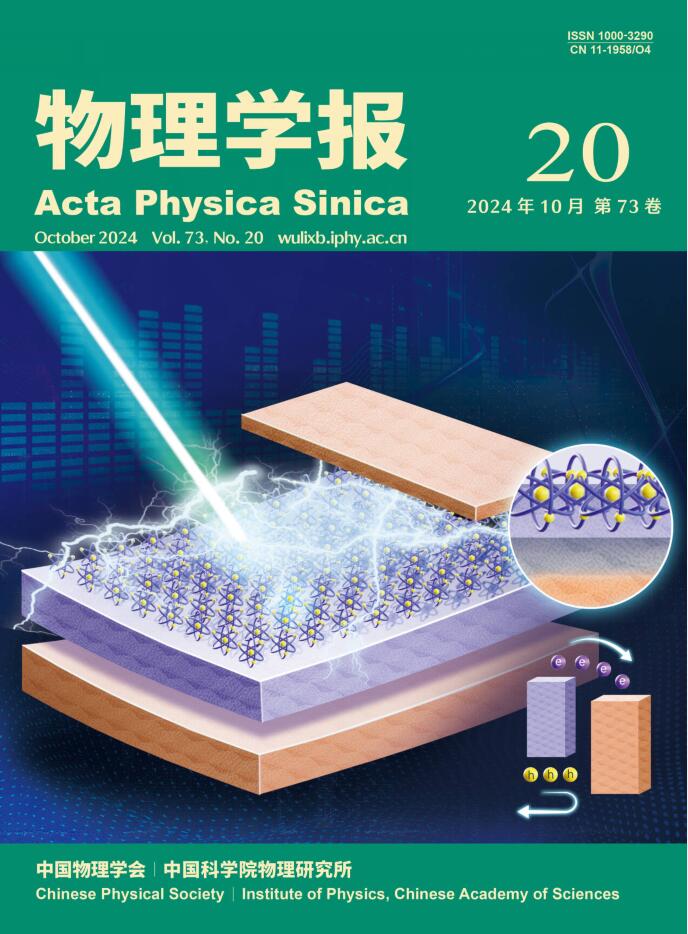反剪切托卡马克等离子体中低频剪切alfvsamn波的理论研究
IF 0.8
4区 物理与天体物理
Q3 PHYSICS, MULTIDISCIPLINARY
引用次数: 0
摘要
动态热离子间隙频率范围内的低频alfv本文章由计算机程序翻译,如有差异,请以英文原文为准。
Theoretical Studies of Low-frequency Shear Alfvén Waves in Reversed Shear Tokamak Plasmas
The low-frequency Alfvénic fluctuations in the kinetic thermal-ion gap frequency range have been of research interest since they can interact with both thermal and energetic particles. In this work, linear wave properties of the low-frequency shear Alfvén waves excited by energetic and/or thermal particles observed in tokamak experiments with reversed magnetic shear are theoretically investigated and delineated in the theoretical framework of the generalized fishbone-like dispersion relation (GFLDR). Since these low-frequency shear Alfvén waves are closely related to the dedicated experiment of energetic ion-driven low-frequency instabilities conducted on DIII-D in 2019, this work demonstrates, by adopting the representative experimental equilibrium parameters of DIII-D, that the experimentally observed lowfrequency modes and beta-induced Alfvén eigenmodes (BAEs) are, respectively, the reactive-type and dissipative-type unstable modes with dominant Alfvénic polarization, thus the former being more precisely called low-frequency Alfvén modes (LFAMs). More specifically, due to diamagnetic and trapped particle effects, the LFAM can be coupled with the beta-induced Alfvén-acoustic mode (BAAE) in the low-frequency region (frequency much less than the thermal-ion transit and/or bounce frequency); or with the BAE in the high frequency region (frequency higher than or comparable to the thermal-ion transit frequency); resulting in reactive-type instabilities. Moreover, due to different instability mechanisms, the maximal drive of BAEs occurs, in comparison to LFAMs, when the minimum of the safety factor (qmin) deviates from a rational number. Meanwhile, the BAE eigenfunction peaks at the radial position of the maximum energetic particle pressure gradient, resulting in a large deviation from the qmin surface. The ascending frequency spectrum patterns of the experimentally observed BAEs and LFAMs can be theoretically reproduced by varying qmin and also be well interpreted based on the GFLDR. In particular, it is confirmed that the stability of the BAAE is not affected by energetic ions, which is consistent with the first-principle-based theory predictions and simulation results. The present analysis illustrates the solid predictive capability of the GFLDR and its practical usefulness in enhancing the interpretative capability of both experimental and numerical simulation results.
求助全文
通过发布文献求助,成功后即可免费获取论文全文。
去求助
来源期刊

物理学报
物理-物理:综合
CiteScore
1.70
自引率
30.00%
发文量
31245
审稿时长
1.9 months
期刊介绍:
Acta Physica Sinica (Acta Phys. Sin.) is supervised by Chinese Academy of Sciences and sponsored by Chinese Physical Society and Institute of Physics, Chinese Academy of Sciences. Published by Chinese Physical Society and launched in 1933, it is a semimonthly journal with about 40 articles per issue.
It publishes original and top quality research papers, rapid communications and reviews in all branches of physics in Chinese. Acta Phys. Sin. enjoys high reputation among Chinese physics journals and plays a key role in bridging China and rest of the world in physics research. Specific areas of interest include: Condensed matter and materials physics; Atomic, molecular, and optical physics; Statistical, nonlinear, and soft matter physics; Plasma physics; Interdisciplinary physics.
 求助内容:
求助内容: 应助结果提醒方式:
应助结果提醒方式:


